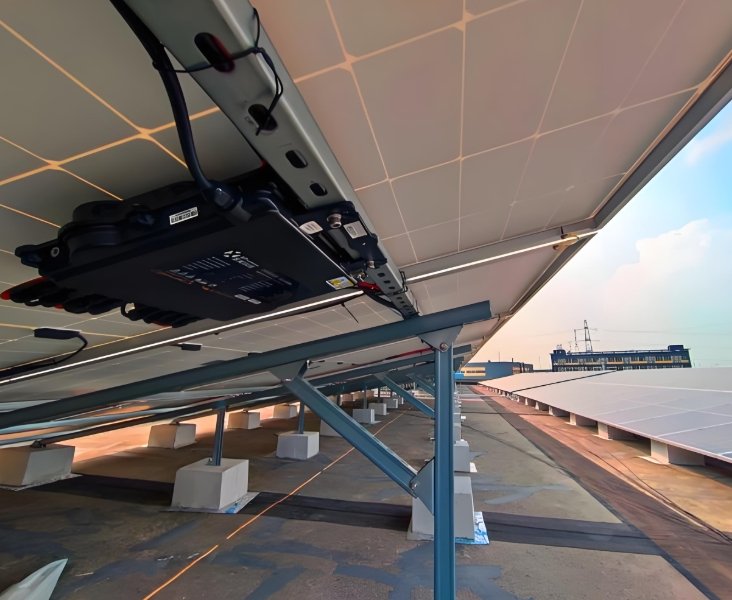Buying a solar inverter is a crucial step when setting up a solar power system. The inverter is responsible for converting the DC electricity produced by your solar panels into AC electricity that can be used in your home or business. To ensure you choose the best option for your needs, here’s a detailed guide on how to buy a quality solar inverter.
Determine Your Energy Requirements
Before purchasing a solar inverter, it's essential to determine your energy needs. Understanding how much electricity you use on a daily and yearly basis will help you choose the right inverter size and ensure that your system meets your energy demand.
- Determine your energy requirements1 by reviewing past electricity bills. This will give you an idea of how much energy you need the inverter to convert.
- Consider future energy needs, such as any potential expansions, adding new appliances, or increasing usage of electric vehicles (EVs).
Example:
- If your home uses an average of 10 kWh per day, a 5 kW solar inverter might be a suitable choice, as it can produce around 20 kWh per day (depending on the location and sunlight hours).
Understand the Different Types of Solar Inverters
Solar inverters come in different types, and choosing the right one depends on your energy needs and system design. The three most common types of solar inverters are:
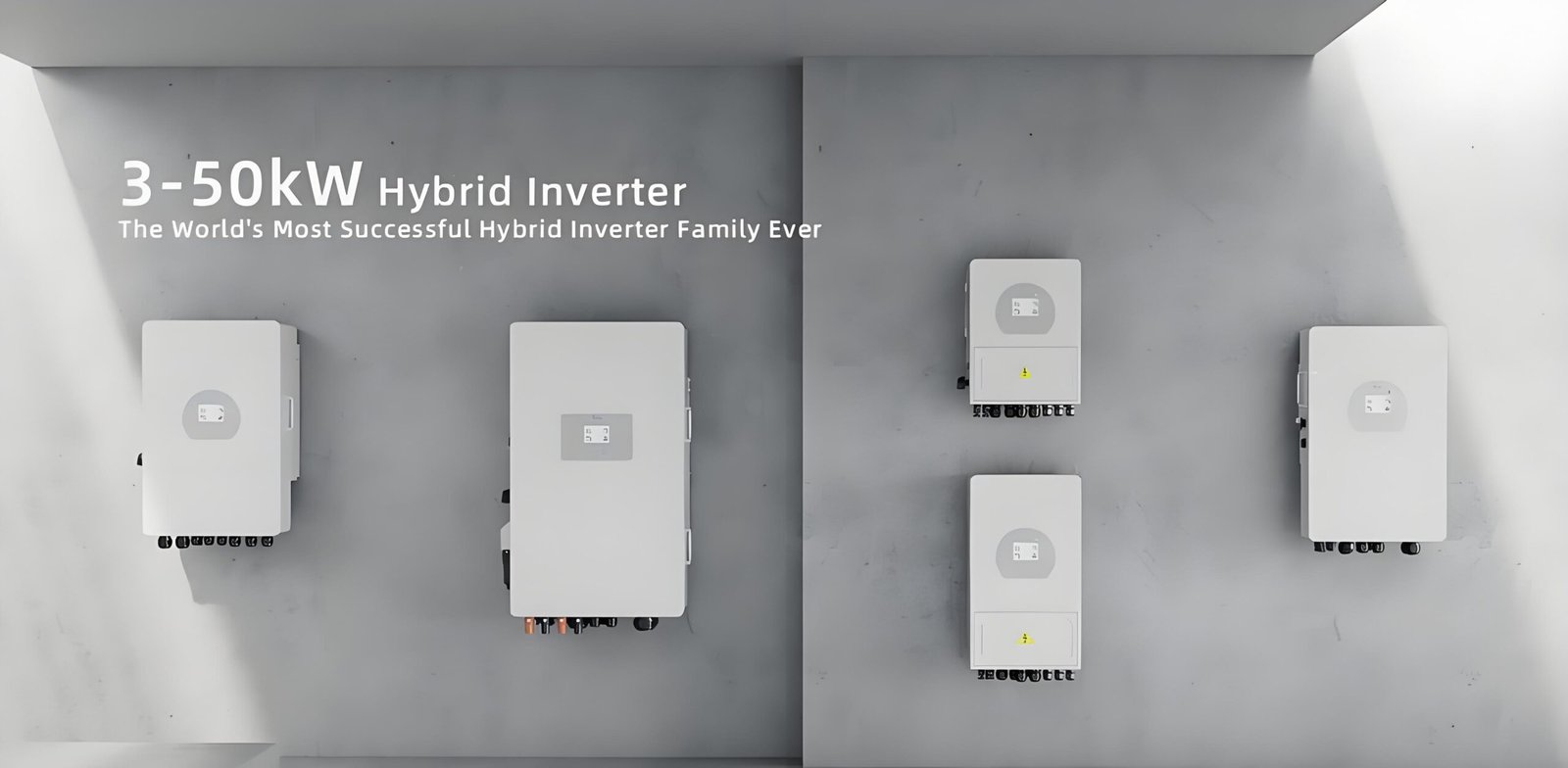
-
String Inverters2: These are the most commonly used in residential and commercial solar installations. They are connected to all the panels in a series (or "string") and convert the DC power from all panels at once.
-
Microinverters3: These are installed on each individual solar panel. They convert DC to AC power at the panel level, which can increase efficiency, especially in shaded areas.
-
Hybrid Inverters4: These inverters allow for the integration of solar panels with energy storage systems (like batteries). They are ideal if you want to store excess energy for use later.
Considerations:
- String inverters are cost-effective but may suffer from reduced efficiency if some panels are shaded.
- Microinverters are more expensive but offer greater flexibility and efficiency, especially for roofs with partial shading.
- Hybrid inverters are ideal if you plan to add batteries to your system in the future.
Evaluate the Inverter’s Efficiency
The efficiency of the inverter determines how much of the solar energy is converted into usable electricity. A high-efficiency inverter minimizes energy loss, ensuring that your solar panels produce as much usable energy as possible.
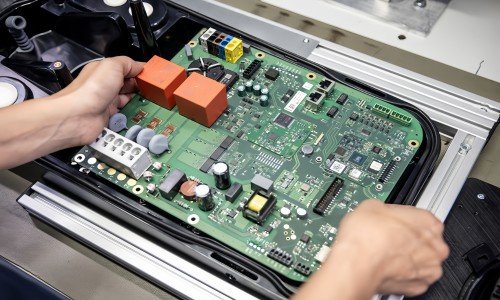
- [Inverter efficiency](What is inverter efficiency and why is it important?)5: Look for inverters with an efficiency rate of 95% or higher. The higher the efficiency, the more value you get from your solar system.
- Maximum Power Point Tracking (MPPT)6 is an important feature that optimizes the inverter’s efficiency by adjusting to the best operating conditions throughout the day.
Data:
- Inverters with MPPT can boost efficiency by up to 25% compared to those without it, especially during cloudy weather or partial shading.
Choose the Right Voltage and Power Output
When selecting a solar inverter, it’s essential to match its voltage and power output to the size of your solar system. A mismatch can result in poor system performance or even damage to your equipment.
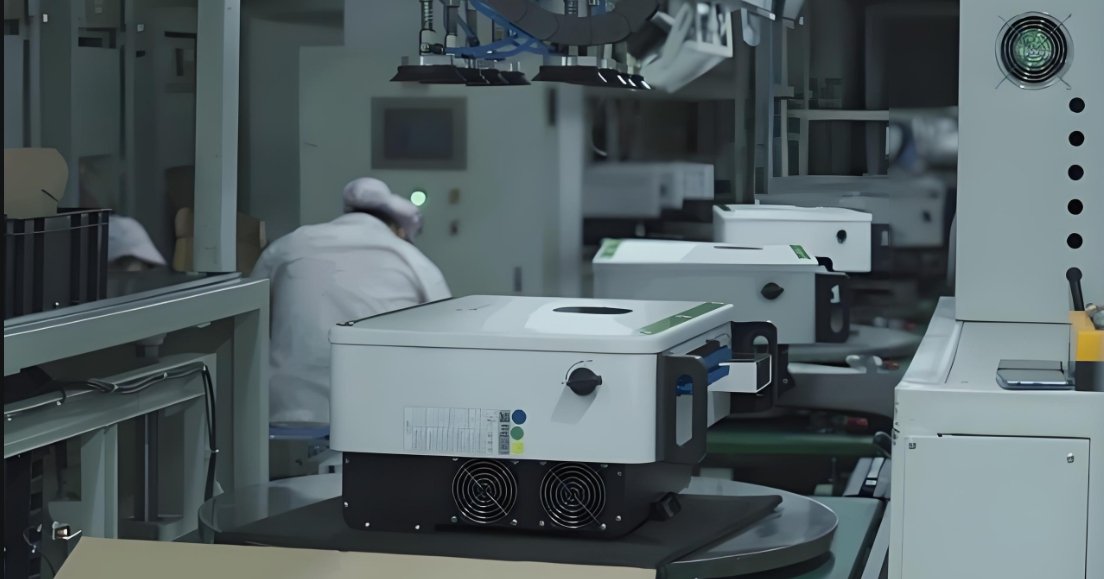
- Voltage7: Most solar inverters come in either 120V or 240V options. Ensure the inverter’s voltage is compatible with your grid voltage.
- Power Output8: The inverter should match the capacity of your solar panels. For instance, if you have a 5 kW solar panel system, you should look for an inverter that can handle at least 5 kW of power.
Example:
- A 6 kW inverter is suitable for a home with 6 kW of solar panels, as it will be able to handle the peak energy production of the system.
Look for a Good Warranty and After-Sales Support
A quality warranty and strong after-sales support are vital for peace of mind. Solar inverters typically come with warranties of 5-12 years.
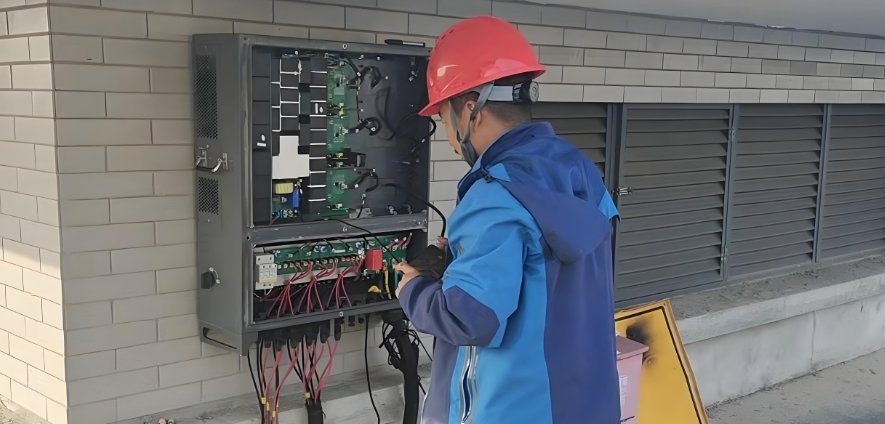
- Check the warranty length and what it covers. A longer warranty indicates the manufacturer’s confidence in the inverter's durability.
- Look for a manufacturer with good after-sales support, including troubleshooting, technical assistance, and repair services.
Example:
- Deye offers inverters with warranties up to 10 years, with options for extending the warranty. Their customer support is known for quick response times and reliable service.
Check for Certification and Compliance
Make sure the solar inverter is certified by relevant industry standards and complies with local regulations. Certifications ensure the inverter meets safety, quality, and efficiency standards.

- Look for certifications such as IEC 62109, UL 1741, and CE.
- Check local regulations to ensure the inverter complies with grid connection requirements and voltage standards in your country.
Example:
- In Germany, all solar inverters must be certified by the German Association of Energy and Water Industries (BDEW) to ensure they are safe for use on the national grid.
Explore Monitoring and Connectivity Features
Modern inverters offer smart connectivity features that allow you to monitor the performance of your solar system remotely. This can be through a smartphone app or web portal.
- Remote monitoring: Allows you to track the performance of your solar panels and inverter, checking things like power output, energy savings, and system health.
- Smart home integration: Some inverters are compatible with home automation systems, enabling better control of your energy consumption.
Example:
- Fronius inverters offer an online portal called Solar.web, where users can track their energy production and consumption in real-time. This feature is available for all models and is included with the inverter at no extra cost.
Consider the Installation Process and Cost
The installation cost of a solar inverter can vary depending on the type, size, and complexity of your system. Some inverters may require additional components, such as a battery system or monitoring equipment.

- Installation of a string inverter is typically less expensive compared to microinverters or hybrid inverters, which require more complex wiring and components.
- Labor costs: Installation costs also depend on where you live. In larger cities, labor costs tend to be higher than in rural areas.
Example:
- In the UK, the installation cost of a standard 5 kW solar inverter can range from €1,000 to €2,000, depending on the complexity of the system and additional features.
Compare Prices and Get Multiple Quotes
Prices for solar inverters can vary greatly depending on the brand, type, and features. It’s important to compare multiple options to ensure you're getting the best deal.

- Get at least 3 quotes from different suppliers or installers.
- Consider the total cost including installation, monitoring features, and warranties—not just the upfront cost of the inverter.
Example:
- In Germany, the price for a 5 kW inverter system can range from €1,500 to €3,000, depending on the brand and whether the inverter includes a battery storage option or smart monitoring.
Conclusion
Buying a quality solar inverter requires careful consideration of your energy needs, inverter types, features, and costs. By evaluating your requirements and researching different options, you can find an inverter that offers the best balance of performance, efficiency, and value.
From understanding the different types of inverters to considering the warranty and installation process, each step plays an important role in making an informed purchasing decision. Always remember to compare multiple quotes and ensure the inverter meets local regulations and standards. With the right inverter, your solar energy system can provide reliable, long-term performance, helping you reduce electricity bills and contribute to a sustainable future.
Footnote:
-
This link explains how to determine energy requirements, ensuring the selected solar inverter matches your daily and future energy needs. ↩
-
This link explains what String Inverters are, their functionality, and where they are most commonly used. ↩
-
This link discusses the benefits of Microinverters, particularly in systems with shading or uneven panel orientations. ↩
-
This link provides an overview of Hybrid Inverters and their ability to integrate solar panels with energy storage systems. ↩
-
This link explains the concept of inverter efficiency, why it matters, and how it impacts the overall performance of solar systems. ↩
-
This link highlights how MPPT boosts inverter efficiency by optimizing energy conversion under varying conditions. ↩
-
This link explains how to select the right voltage for a solar inverter based on grid compatibility and system requirements. ↩
-
This link highlights the importance of power output matching and how to select an inverter that handles your solar system’s capacity. ↩

